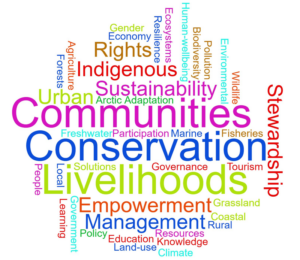21 May Unrepressed Collaboration: The New Normal for Conservation Action in Canada
Something special happened in Canada in 2015; the parks community, representing 200 thought-leaders and decision makers from all coasts and geo-political regions throughout the country, met to determine shared goals and priority actions resulting in distinct practices and individual responsibilities. Invited by the Canadian Parks Council (CPC) and the Canadian Parks and Recreation Association (CPRA), governments and leaders from municipal, provincial, territorial and Indigenous perspectives, joined forces with academics, youth, non-government organizations, and industry to see, learn, speak and hear how we interact with each other, with species, and with the land. What surfaced, through honest dialogue and a view to share and conserve the powerful benefits of Nature, was a united commitment to establish connected Canadian park lands and waters that support healthy Nature and healthy people.
As a unique national response to the IUCN’s #NatureForAll global movement, Parks for All: An Action Plan for Canada’s Parks Community, published in 2018, has helped to support a “new normal” for conservation action in Canada. Grounded in four strategic priorities — collaborate, connect, conserve and lead — the action plan identifies specific actions individuals and organizations can undertake to better our collective future where communities thrive without depleting the environment.
This represents a significant paradigm shift articulated in Parks for All, and will reinforce, by example, a very specific Canadian initiative that has put the paradigm shift into practice. The Pathway to Canada Target 1 is the process through which Canada is working to achieve the terrestrial goal associated with Aichi Target 11 — a commitment to protect at least 17% of Canada’s land and inland waters. Experts representing local perspectives and national interests involved in Parks for All and the Pathway to Canada Target 1 shared insight into the following questions: 1) what are the principles associated with the paradigm shift; 2) what conditions in Canada enabled an openness to work differently across governments and sectors for better conservation outcomes; and, 3) how can the Canadian model of unrepressed collaboration be extended to other community development initiatives that aim to sustain livelihoods, conserve local environments, while loving Nature.
Key Themes:
Factors of Success in Community Conservation, Climate and Environmental Changes, Engagement, Education & Empowerment, Governance, Rights & Conflict
Presenters:
Dawn Carr (Canadian Parks Council), Scott Jones (Government of Alberta)



